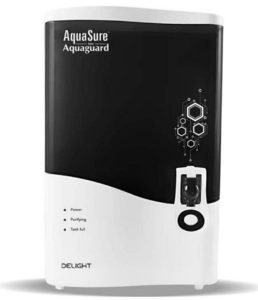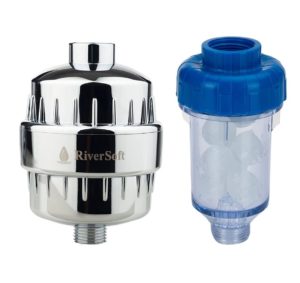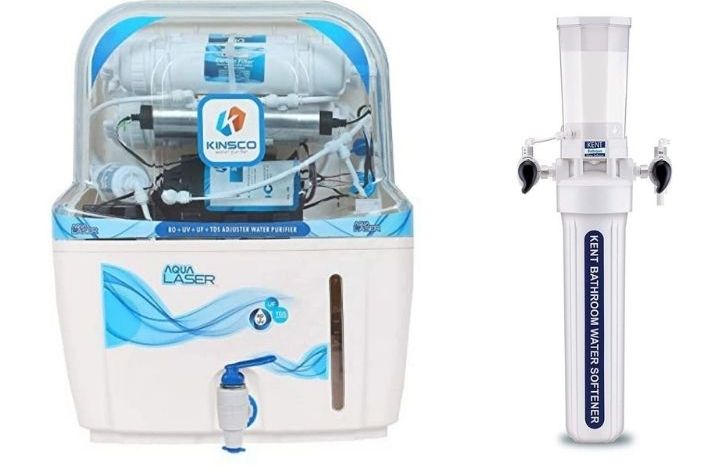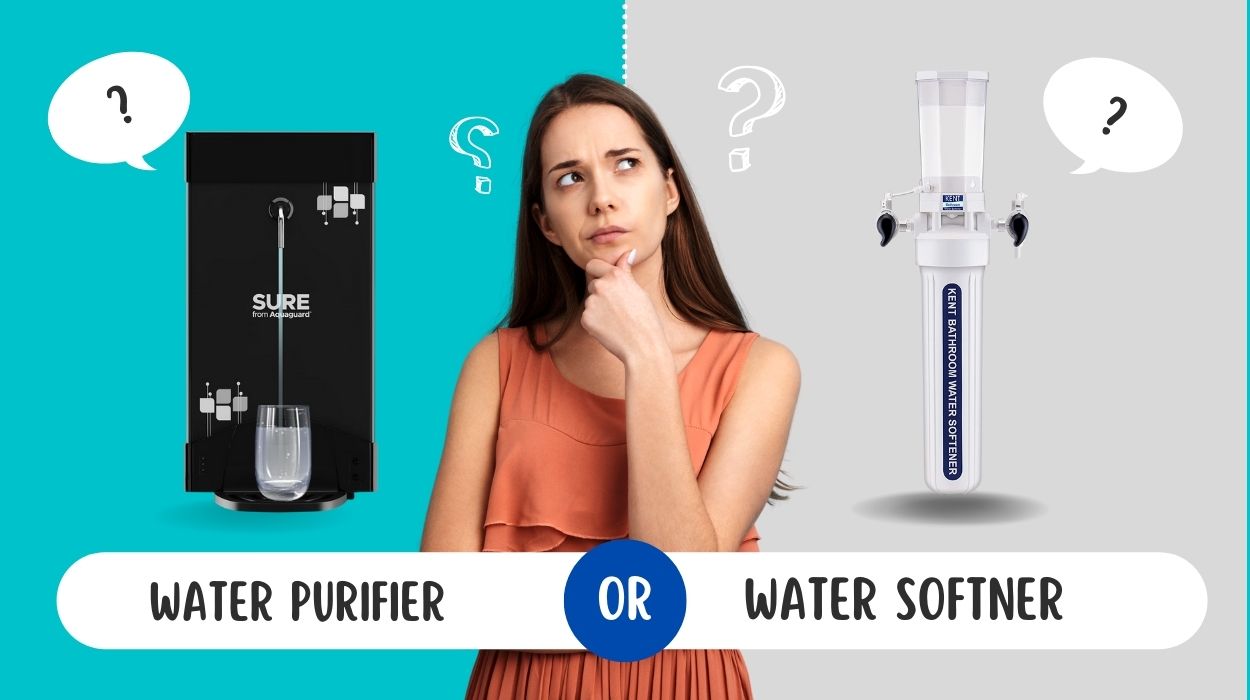We all require safe and clean water to keep our family away from any impurities and help support good health. In order to help make contaminated water transform into clean and safe water, there are tons of devices available in the market.
Research says every one out of four homes owns a water purifier. The water purifier and water softener both operate to improve the quality of water.
But these devices have different purposes and use, which can often confuse most people in understanding the differences shared between water purifiers and water softeners.
If you face this confusion as well, then no worries. In this article, I’m going to discuss water purifiers and softeners, how they operate and their uses.
What does Water Purifier Do?

Water purifiers eliminate the impurities found in the water, such as bacteria, heavy metals, viruses and various other contaminants. Water purifiers are highly used among people. It includes a two-step procedure and involves multiple stages or layers of filtration to provide safe and purified water.
The two steps include physical filtration and chemical filtration. RO filter is recognized as one of the best water filters for providing clean water.
The physical filtration process involves eliminating various physical contaminants from the water, such as dust, dirt, sand, and more. While, the chemical filtration includes eliminating those kinds of impurities in water that can’t be seen through the naked eye, which are viruses, bacteria, heavy metals, chlorine and more dissolved solids.
What does Water Softener Do?

Unlike water purifiers, a water softener doesn’t work on purifying the water. But instead, it deals with hard water by reducing the hardness level of water.
These water softeners are used to eliminate the minerals existing in the water that makes the water hard.
Some of the minerals that water softener removes are magnesium and calcium through a method known as ion exchange. This water goes into the mineral container, and then it flows through the resin beads, which are anions.
These beads are generally produced through polystyrene and are charged with sodium ion. Minerals such as magnesium and calcium are positive charges which makes them cations. While the anions contain a negative charge.
Because opposite charges attract these resin beads, which are negative charge that attracts these positive charge cations, when this hard water flows through the resin, the beads start to work by grabbing these mineral ions and eliminating them from water.
Sodium-ion gets let out when the bead seizes the mineral ion. Once these mineral ions are removed, the hardness level starts to drop, and the softness level tends to increase these resin strips allows the softened water to pass through your home.
When Do You Need a Water Softener?
Water softener deals with hard water and makes them softer by eliminating the minerals. You can use a water softener for various purposes such as washing utensils or clothes, bathing, cleaning your house and more.
Water softener assists in preventing various damaging effects of hard water on your clothes and help make them softer and cleaner along with a fresh feel and appearance.
Hard water includes several minerals that can make the colour of your clothes fade. These minerals can even cause dingy whites and several stains, which might completely ruin your clothes.
But with a water softener, you can prevent all the issues related to colour fading and stains as soft water can quickly dissolve into the clothes and assist in cleaning them more efficiently.
Washing your dishes with hard water can lead to cloudy appearances in glass and silverware. Water softener helps solve this issue by eliminating the minerals in the water, which can help remove this cloudy appearance issue.
But you shouldn’t drink this water because even though it has gone through the process of eliminating minerals from water, it can still have contaminants and impurities present as it has been softened, which makes it unsuitable for consumption.
Therefore, you can use a water softener for various everyday work use apart from drinking water.
When Do You Need a Water Purifier?
Most times, the water supply in your area can be filled with various contaminants, making the water unfit for consumption.
In such a scenario, you would need a water purifier to improve water quality and make them purified and safe for drinking.
Unfiltered water can lead to several health-related diseases such as diarrhoea, cholera and more.
Water purifiers use various purification stages, membranes and filters. Which can help detect and remove these impurities existing in the water.
Can a water purifier and water softener be used mutually?

No, you cannot use water purifiers and water softeners mutually as both contain different functioning properties.
Water softeners deal with hard water and work in reducing the hardness level. In comparison, water purifiers deal with chemical and physical pollutants, due to which water purifiers and softeners can’t use them mutually.
FAQs
How long can a water softener last?
A water softener that works through electricity can last for around 2 to 10 years. A water softener that works through kinetic energy can comparatively last longer, more than 10 to 15 years. The quality of the water softener and how well it has been maintained plays a massive part in their lifespan.
Is boiling water better than using water purifiers?
Boiling your water can help you eliminate bacteria existing in your water. However, it can’t help remove the toxic chemicals and impurities present. Therefore, water purifiers are preferred as their purifying methods and filters can eliminate these impurities, pollutants and chemicals in the water.
Also Asked:
RO Vs UV Vs UF Water Purifiers
Water Filter Vs. Water Purifier
Conclusion
Water purifiers and water softeners both help in providing us with safer and more beneficial water for different uses. On the one hand, water purifiers make sure our body is getting the proper clean and safe water required to keep the body healthy.
Water softeners make sure the water we use for several purposes such as clothes, dishes and more are able to provide us beneficial results.
Above, we have mentioned all about how do water softeners and purifiers work which can help you understand this device much clearly.
Tell us in the comments if you have any doubts regarding water softeners or water purifiers.


